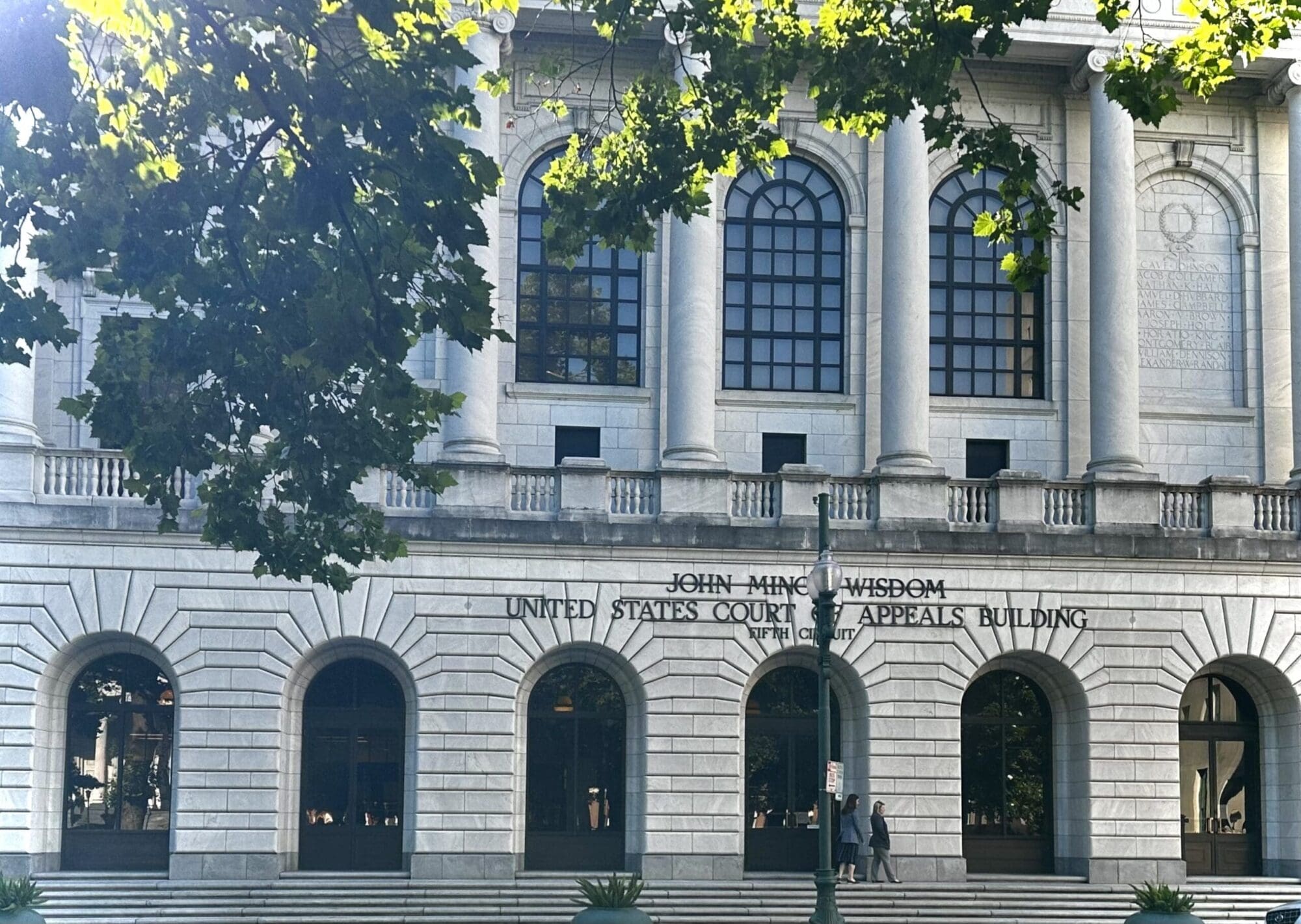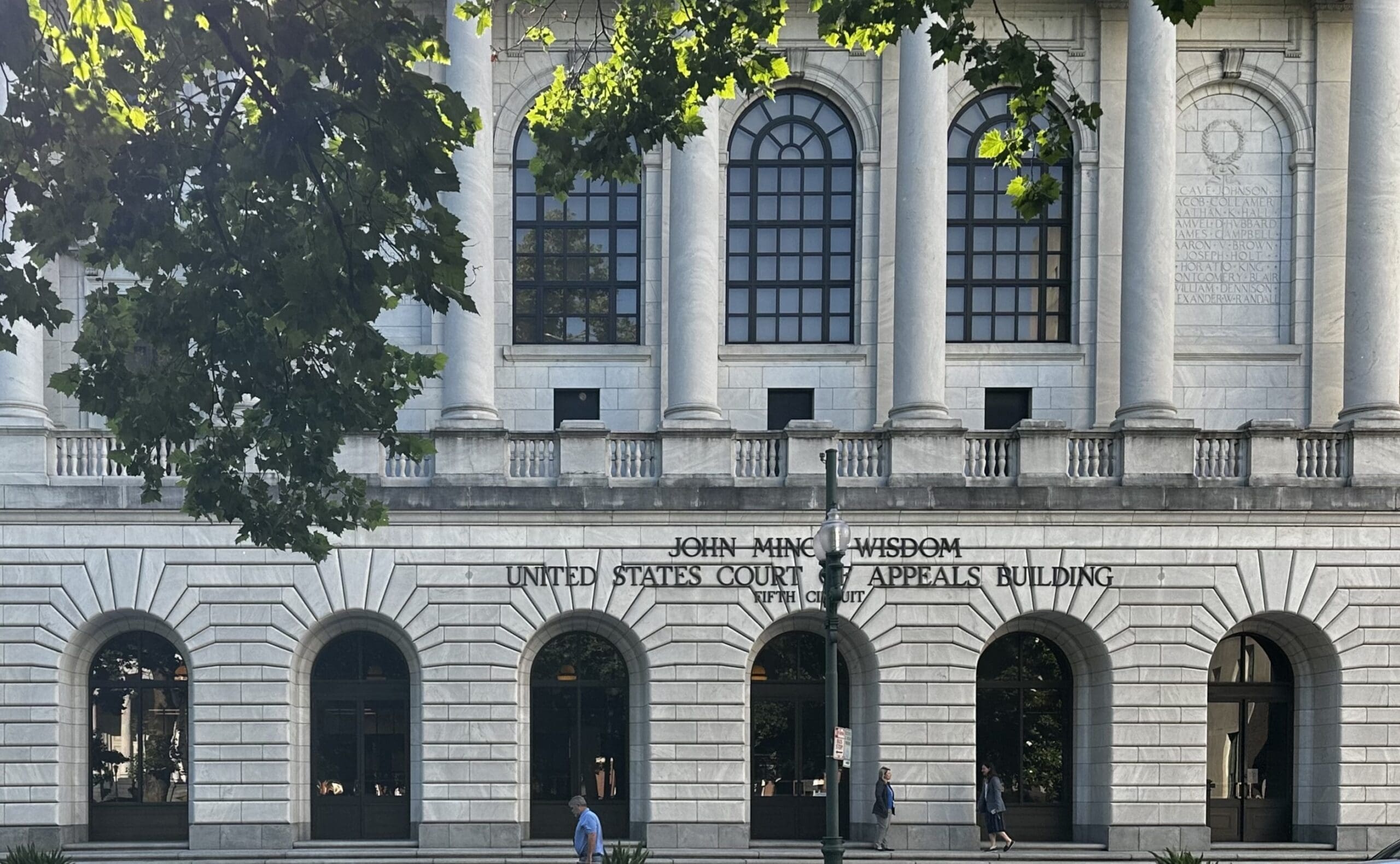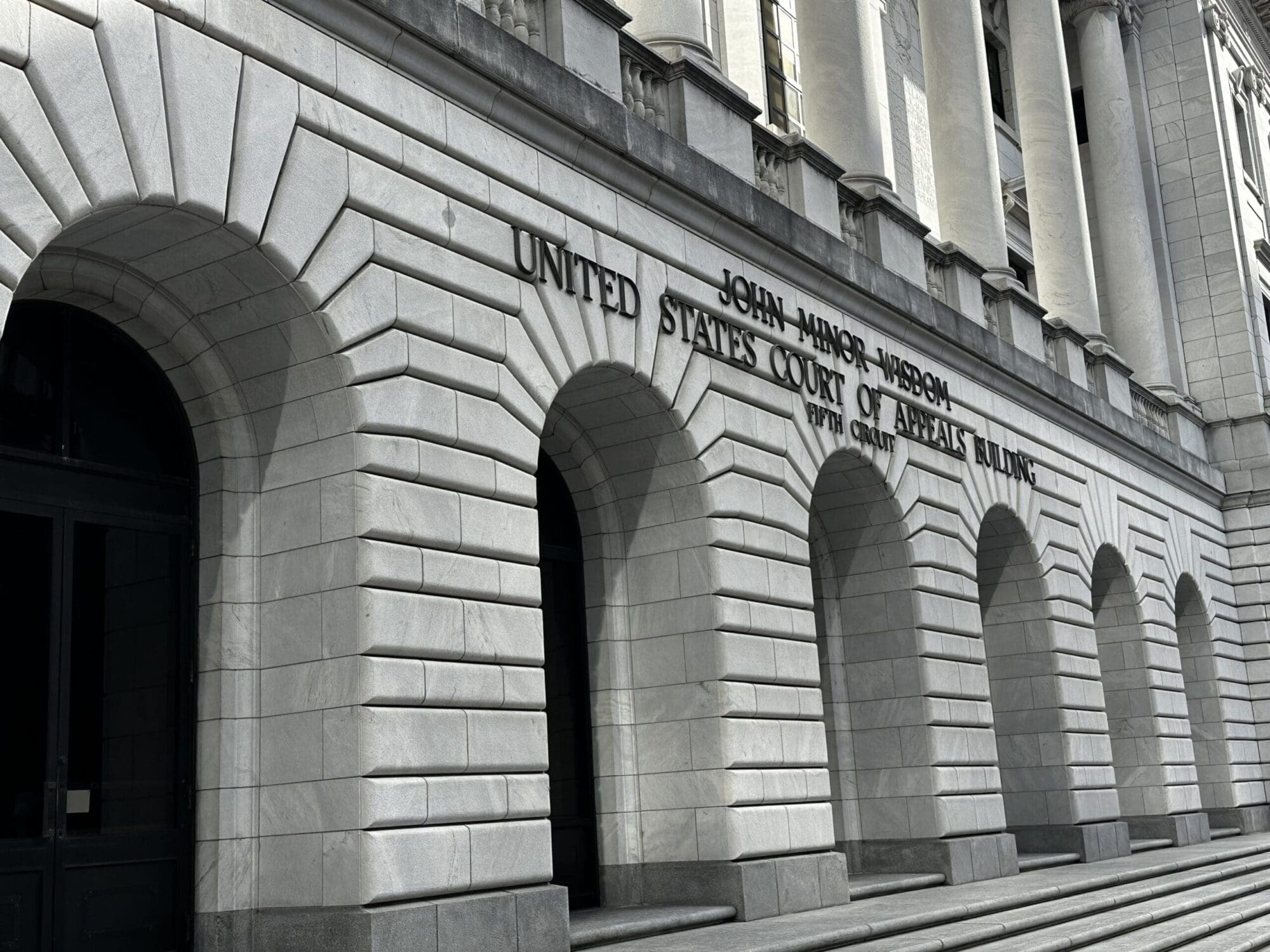A voting rights lawsuit that could cost Texas Democrats seats across all levels of government received a hearing Tuesday by the full Fifth Circuit Court of Appeals in New Orleans, known as the most conservative federal appellate court in the country.
The Galveston County redistricting case is challenging how the appellate court has previously interpreted the Voting Rights Act, which was passed to protect individual minority groups but has been “twisted” for political advantage.
At issue is whether Section 2 of the law requires the county to create a majority-minority district by grouping a “coalition” of black and Hispanic voters.
Neither blacks nor Hispanics are a large enough group in Galveston County to create a majority district.
The county contends that the Voting Rights Act does not protect coalition districts—which represent political, not racial, alliances—nor does it guarantee that Democrats will be elected.
Courts in other federal circuits do not allow aggregating distinct minority groups to force what are almost always Democrat districts.
“The Voting Rights Act was meant to right wrongs. It wasn’t meant to subsidize political parties with legislative seats. That’s what this case is about—the real meaning of the Voting Rights Act, or, how it has been twisted by coalition districts,” said J. Christian Adams, President and General Counsel of the Public Interest Legal Foundation, representing Galveston County in the case.
A win by Galveston County would be a blow to Texas Democrats.
The case began in 2021 when Galveston County’s Republican-majority commissioners court, headed by County Judge Mark Henry, drew new boundaries for the county’s four commissioner districts following the decennial census.
The plan eliminated the lone Democrat commissioner’s majority-minority precinct, a coalition district of blacks and Hispanics. The commissioner is black and has served on the court since 1999.
Three sets of plaintiffs then sued the county: a group of current and former Democrat officeholders (the Petteway plaintiffs), local chapters of the NAACP and LULAC, and the U.S. Department of Justice. The three federal lawsuits were consolidated into Petteway v. Galveston County.
Following a two-week trial last August, a federal judge in Galveston ruled in favor of the plaintiffs’ claim of vote dilution in violation of Section 2 of the Voting Rights Act. The decision was based on a nearly 40-year-old Fifth Circuit precedent supporting coalition claims.
Galveston County appealed to the Fifth Circuit.
After hearing arguments in November, a panel of three appellate judges said that the circuit court’s past decisions supporting coalition claims “are wrong as a matter of law” and “should be overturned.” Only a ruling by the full Fifth Circuit or the U.S. Supreme Court can overturn the precedent.
In December, another three-judge panel granted the county’s request to use the new boundaries in the 2024 election. The U.S. Supreme Court upheld that decision.
During Tuesday’s en banc hearing, all Fifth Circuit judges heard arguments from attorneys representing Galveston County and the three plaintiffs.
Attorney Joe Nixon with the Public Interest Legal Foundation argued on behalf of Galveston County.
“There is nothing left for the court to decide,” Nixon told the judges. “You just need to look at Section 2. What words require coalition districts? There are none.”
Nixon argued that in a vote dilution case, the question is whether there is a protected class whose vote has been diluted, and that protected classes are defined by statute as individual minority groups.
“What must plaintiffs prove? That a minority group is numerous enough to make a majority district,” he said.
Nixon noted that Congress never put a coalition claim in the Voting Rights Act, and coalition legislation recently proposed by congressional Democrats suggests they don’t believe it is in the current statute.
“There are no words in the statute that allow it, only political arguments,” he concluded.
Chad Dunn, an attorney for the Texas Democrat Party representing the Petteway plaintiffs, argued that the Galveston case involves the “intentional destruction” of an existing coalition district, which, he said, is different than creating a new coalition district.
“Is it too much to ask for one seat at the table?” said Dunn, adding that “Republicans win everything” due to their 4-1 majority on the court.
Nixon responded that there is “no ‘seat at the table’ right” within the law.
“Their political desire was thwarted,” he said. “They’re trying to use this section to give them a remedy which doesn’t exist.”
If Galveston County prevails in its challenge to coalition districts, Democrats in Texas, Louisiana, and Mississippi (states covered by the Fifth Circuit) stand to lose seats at the local, state, and congressional levels.
“Like everything this administration touches, the Biden DOJ’s decision to sue Galveston County is yet another blunder that could ultimately lead to hamstringing the Democratic Party’s ability to control Congress,” said Judge Henry. “They picked this fight. They could very likely lose.”
Henry said the county is willing to take the case to the U.S. Supreme Court.
No ads. No paywalls. No government grants. No corporate masters.
Just real news for real Texans.
Support Texas Scorecard to keep it that way!




